Experts warn of more floods
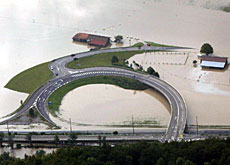
The Swiss Meteorological Office has sent out a stark warning that the country should brace itself for more severe flooding in future.
An increase in the average temperature in Switzerland of between 1.2 and 1.5 degrees Celsius in the past 150 years is being blamed for the intense periods of heavy rainfall witnessed last weekend.
Stephan Bader of the Meteorological Office told swissinfo that the risk of more flooding, particularly in the autumn months from September to November, will increase if temperatures continue to rise as expected.
“By using meteorological models we can say that there is a strong possibility of more heavy rainfalls in the future due to increases in the temperature of the atmosphere,” said Bader.
“We predict that the potential for heavy rainfalls that will lead to floods will increase.”
The average winter rainfall in Switzerland has increased by 40 per cent in the west of the country and by ten per cent in the east in the past 25 years. But the amount of rain between April to September has shown no significant changes.
“We know that the atmosphere has become warmer and that it will probably further increase in temperature,” said Bader.
More rain, less snow
“Because of this, we have to presume that in Switzerland, and in the Alps in particular, there will be patches of warmer weather for longer periods in the yearly cycle and heavy rain later in the year, between September to November. That will be proper rain and not snow.”
But Bader said it was not possible to blame conclusively last weekend’s flooding on man-made global warming.
“We know that there was low pressure over the area, but there is nothing unusual about that,” he said. “The big question is whether [the effects of human activity] can trigger such a one-off event [- flooding -] in addition to the presence of low pressure.
“It is possible that more intense rain was produced than if there had been no human influence. The potential is there in the atmosphere to trigger more rain because of the increased temperature.
“But to be able to say concretely that this occasion was linked to global warming cannot be proved.”
The Meteorological Office predicted the weekend’s heavy rainfall on Friday, but Bader said it was impossible to give much more advance warning.
“We can only make forecasts for a maximum of ten days,” he said.
swissinfo, Matthew Allen
The average temperature in Switzerland has increased by between 1.2 and 1.5 degrees Celsius in the past 150 years.
Since the end of the 1970s the average rainfall in winter (from October to March) has increased by 40 per cent in the west of the country and by ten per cent in the east.
There has been no marked difference in the rainfall in the summer months.

In compliance with the JTI standards
More: SWI swissinfo.ch certified by the Journalism Trust Initiative

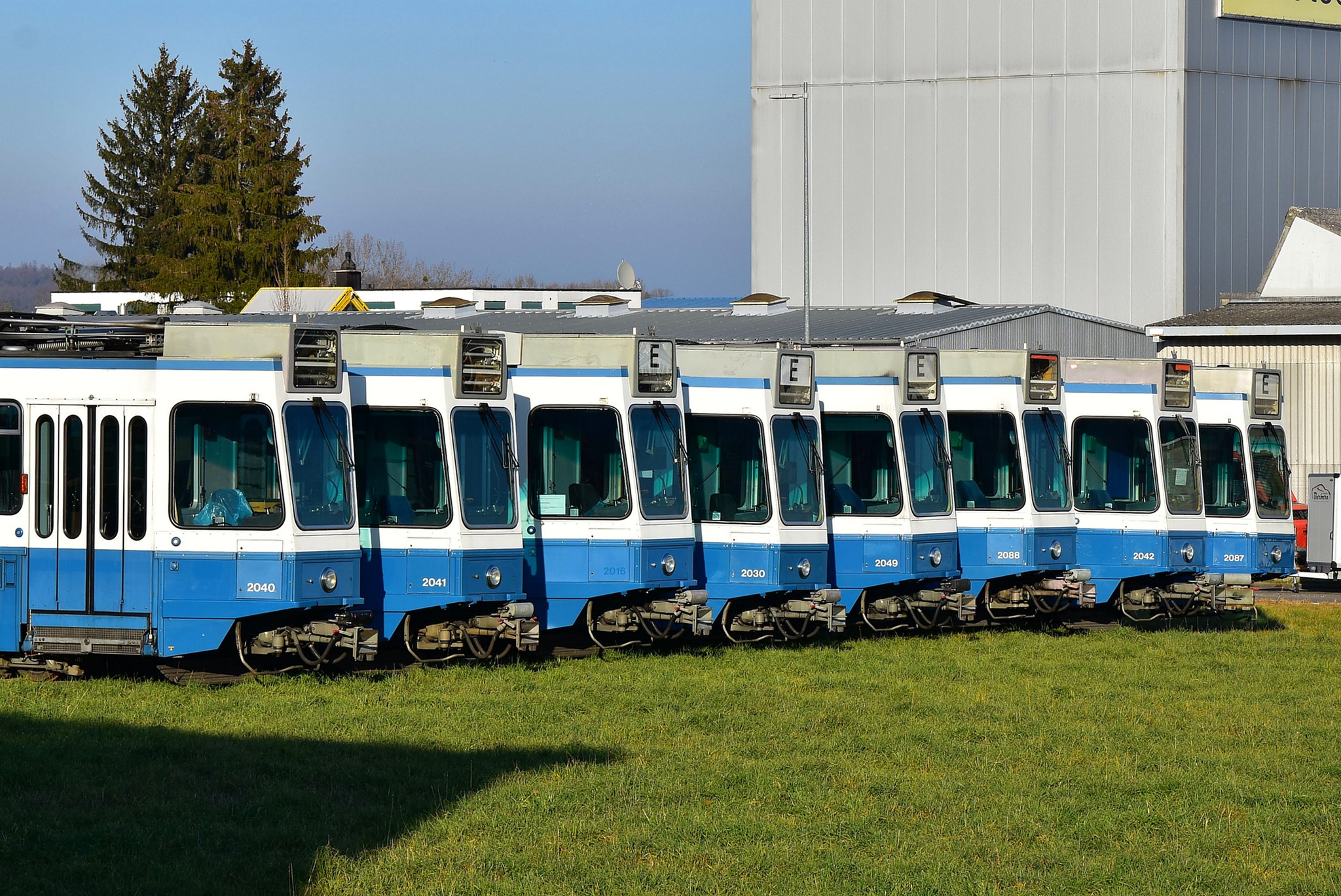

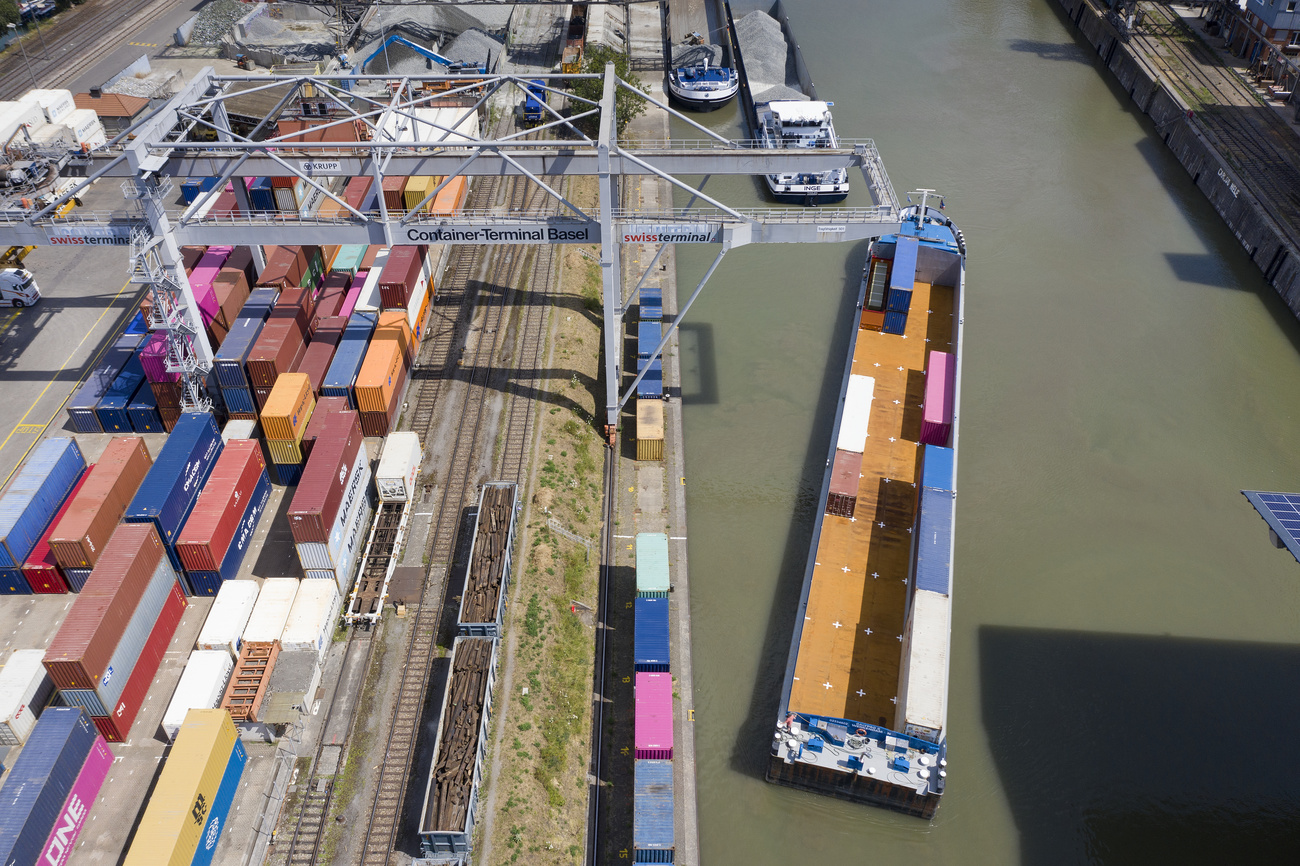





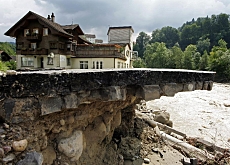
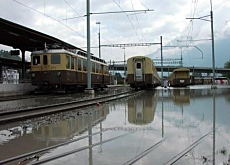
You can find an overview of ongoing debates with our journalists here . Please join us!
If you want to start a conversation about a topic raised in this article or want to report factual errors, email us at english@swissinfo.ch.